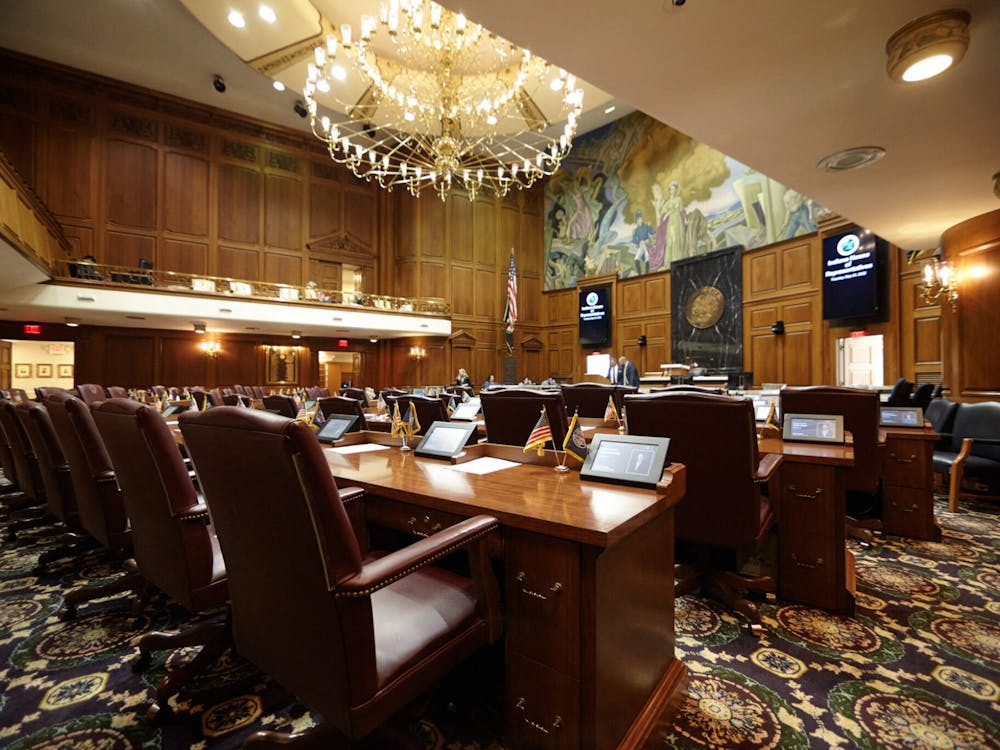TRIPOLI, Libya (AP) — Government-organized trips to a mass funeral, a morgue, and a home officials say was damaged by a bomb have raised more questions than they answer about civilian victims of the fighting in Libya.
The dispute over civilian casualties sharpens with every day of the international campaign, a combination of stage-management from the Libyan government and the difficulties of getting straight answers during chaos.
Government officials struggle to provide solid evidence. The U.S. and others say they're doing everything possible to keep ordinary Libyans safe from their bombs and point to Moammar Gadhafi's long record of crushing dissent.
At a funeral for 33 victims on Thursday, only 13 bodies were lowered into the ground, with no information provided on who they were or how they died. None of the usual effects of an Arab martyr's funeral were seen — no crying mothers, chanting relatives, or gigantic photos of the dead.
No one really knows what happened to the other coffins.
Early Friday, journalists were told they'd be taken to a hospital to see the casualties, but instead were taken to the morgue, where a morbid display of charred bodies lay on trays on the ground. Some of the bodies were women dressed in jeans and T-shirts, others were young men in green army fatigues.
Hospital staff and government officials could not confirm the names or backgrounds of the victims, and only said they had died in two days of airstrikes in the Tripoli neighborhood of Tajoura.
On Friday, Libyan officials took foreign journalists to Tajoura itself. Two military bases on the way had clearly been hit, their buildings twisted and damaged. Black smoke still rose from one.
The small farm where the bus finally stopped was a wreck: The windows of the home were smashed in, the television toppled over. Plaster was everywhere on the floor, but the painted walls were intact. The outside of the home was riddled with what looked like bullet holes, with pieces of shrapnel lodged in some of them. AK-47 bullet casings were also found outside the door of the home and on the roof.
Rajab Mohammed, the owner, said he was in the living room with his children when he heard an explosion outside and the glass shattered. He said his 18-year old daughter ran out in fear and was hit by shrapnel in the back.
He led journalists to the base of a palm tree in his front garden, pointing at a pit in the base the size of a large beach ball where he said the bomb fell.
"There were bullets and shrapnel everywhere and the children were so scared," said Mohammed, struggling to explain the source of the bullet holes on the outside of the house.
Government minders berated journalists if they pressed Mohammed and his gardener further about details of the bombing.
Libyan state television daily shows blackened and mangled bodies that it said were victims of airstrikes in Tripoli. Rebels have accused Gadhafi's forces of taking bodies from the morgue and pretending they were civilian casualties, an allegation bolstered by a U.S. intelligence report.
The report Monday said that a senior Gadhafi aide was told to take bodies from a morgue and place them at the scene of the bomb damage, to be displayed for visiting journalists. A senior U.S. defense official revealed the contents of the intelligence report on condition of anonymity because it was classified secret.
At daily press conferences, government officials have been asked for a casualty count by journalists and, despite promises, had not produced one before Friday night.
A Health Ministry official, Khaled Omar, told reporters a total of 114 Libyans have died in the international airstrikes, but he did not provide a breakdown of how many were soldiers or civilians.
"We think it is immoral and illegal to kill even our soldiers because we are taking defensive positions only," said government spokesman Moussa Ibrahim.
A group of journalists attempted to visit a hospital on Thursday where casualties were reported to be, but were stopped by Libyan security forces, detained for an hour, and escorted back to their hotel. They were told they weren't allowed to visit the hospital unattended by a government minder.
British Foreign Secretary William Hague told BBC television that his government had seen no proof of any civilian deaths.
"As you know, as I think it's very important to keep reminding people, we are taking extreme care to avoid civilian casualties," he told the broadcaster.
"In fact there are no confirmed civilian casualties so far from the coalition airstrikes, and missile strikes, in all the operations since Saturday. Civilian casualties are being caused solely by the Gadhafi regime."
Fred Abrahams, Human Rights Watch's special adviser on Libya, agreed, although he noted that his organization had no one in Tripoli. Abrahams said that it was important to keep in mind that "in war civilian casualties can always occur."
Still, he said, "I would approach claims by Gadhafi's government with a very large grain of salt."
Human Rights Watch's London director Tom Porteus cautioned that even confirmed evidence of civilian deaths did not necessarily mean negligence or malice given the uncertainties of aerial bombardment.
"Just because you've got a civilian body killed in an airstrike, doesn't mean there's been a war crime or even a violation of international humanitarian law," he said. As for coalition officials, he said that they were "clearly bending over backward to say that they're bending over backward to avoid civilian casualties."




